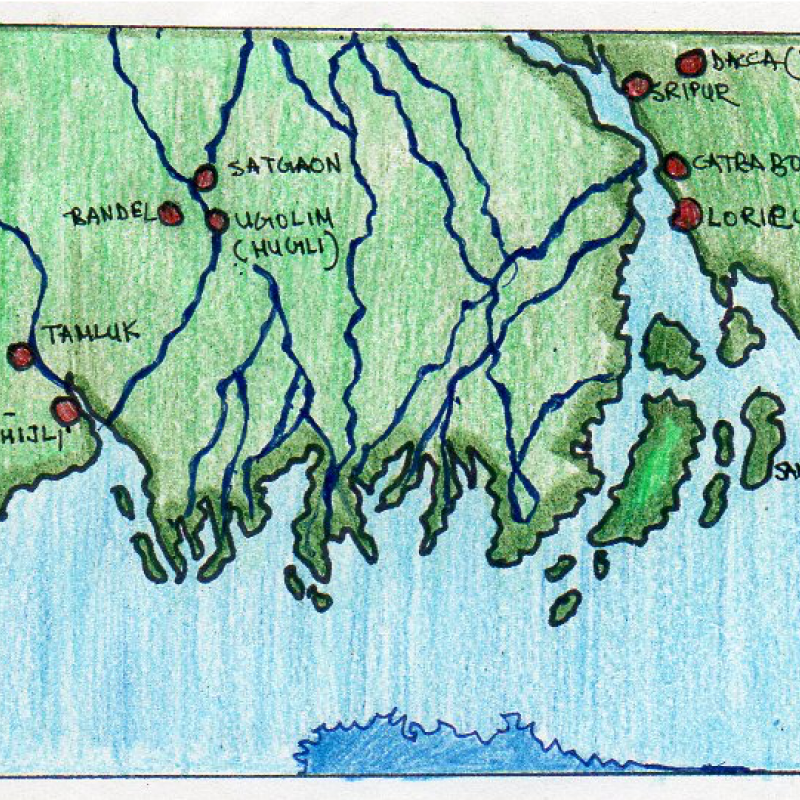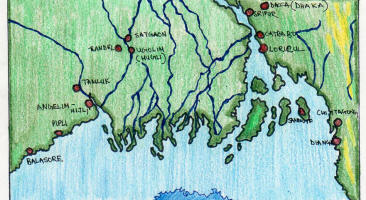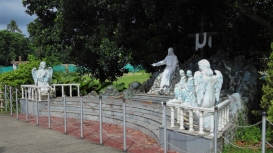The Portuguese arrived in India in 1498. From the early sixteenth century they began to gradually trickle into Bengal. However, in contrast to the western coast, Portuguese presence in the coast of Bengal was primarily characterised by private initiatives, giving the settlement a unique nature. The region’s language, popular ballads, literature, culinary as well as material culture, all reveal continuing Portuguese influences and legacies.
This module aims to look into the history of Portuguese presence in early modern Bengal—their early expedition to the region, their various settlements, trading activities and ultimate decline. It also attempts to document the remnants of the Portuguese legacies preserved in Bengal’s culture and memories, over the years, though often in forms and contexts disparate from their origin.




